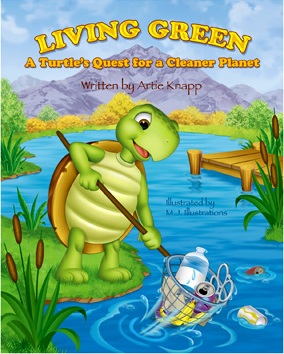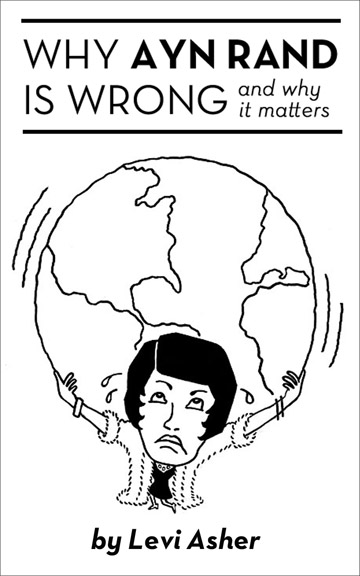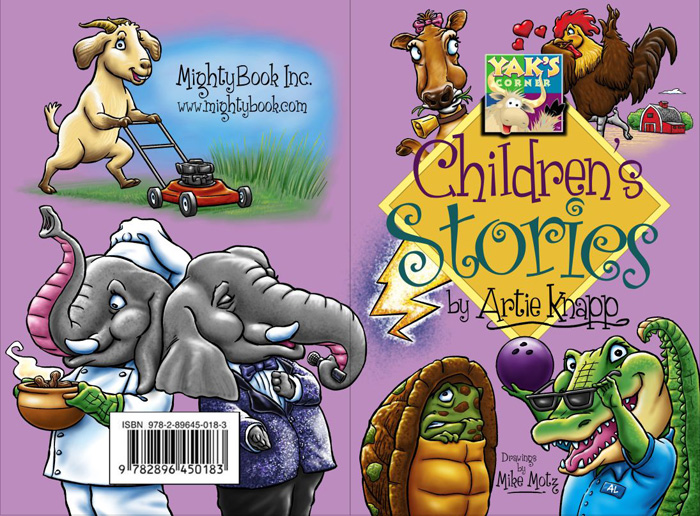 Artie Knapp’s new children’s book, ‘Living Green: A Turtle’s Quest for a Cleaner Planet,’ is available! Tired of seeing the land he loves cluttered with trash, Thurman the turtle decides it’s time to take action. He’s a very environmentally conscious turtle who simply won’t take no for an answer.
Artie Knapp’s new children’s book, ‘Living Green: A Turtle’s Quest for a Cleaner Planet,’ is available! Tired of seeing the land he loves cluttered with trash, Thurman the turtle decides it’s time to take action. He’s a very environmentally conscious turtle who simply won’t take no for an answer.
Here’s a recent radio interview Artie Knapp did on a show called ‘The American Perspective:’
Get the book at Barnes & Noble
A delightful story that uses whimsical animal characters and engaging art to show younger readers that everyone can make a difference, no matter how small!
Sharon Martin, Newspapers in Education Manager, the Detroit Free Press
A determined turtle named Thurman shows us all that following your heart and doing what you believe in, no matter what others say, can make a difference. This story, like many of Artie Knapp’s other tales, is sure to entertain, educate and inspire our youth!
Kristin Garrison, Newspapers in Education Manager, the Cincinnati Enquirer
Kids are great ambassadors for the environment and Living Green makes the issue of human impact on the planet even more real through a brave, animal hero, Thurman, who literally risks his neck for earth.
Brandie Weikle, Editor of the Toronto Star’s parenting website, ParentCentral.ca
There’s even a special web site for Thurman the turtle.



